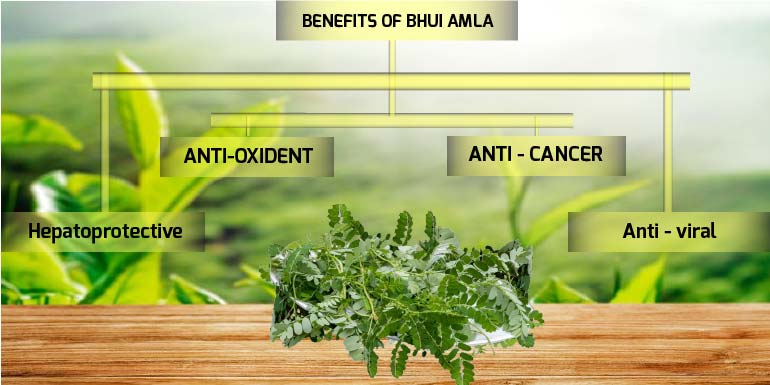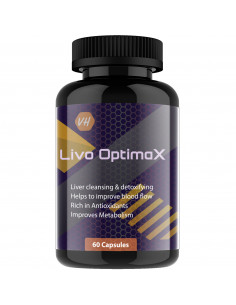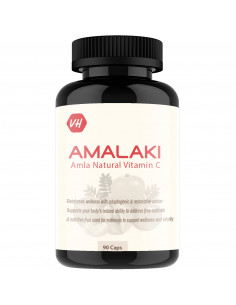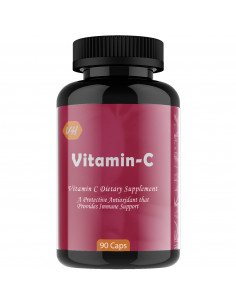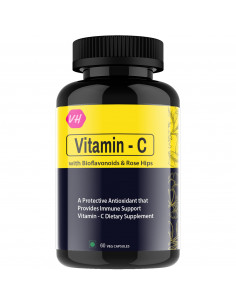Bhui Amla, also known as Phyllanthus niruri, is a commonly used herb in Ayurveda for its potential hepatoprotective properties. According to Ayurvedic principles, Bhui Amla is believed to balance the Pitta dosha and help support liver function. It is also believed to have anti-inflammatory and antioxidant properties that may help protect the liver from damage.
Several studies have investigated the potential hepatoprotective benefits of Bhui Amla. A study published in the Journal of Ethnopharmacology in 2003 found that Bhui Amla extract had hepatoprotective effects in rats with liver damage induced by paracetamol. The study demonstrated that Bhui Amla extract could significantly reduce the levels of liver enzymes, such as alanine transaminase (ALT) and aspartate transaminase (AST), which are commonly elevated in cases of liver damage.
Another study published in the Journal of Herbal Medicine and Toxicology in 2010 found that Bhui Amla extract had hepatoprotective effects in rats with liver damage induced by carbon tetrachloride. The study demonstrated that Bhui Amla extract could effectively reduce the levels of liver enzymes and improve liver histology.
Moreover, a study published in the journal Food and Chemical Toxicology in 2013 found that Bhui Amla extract had antioxidant and anti-inflammatory effects in rats with liver damage induced by a high-fat diet. The study demonstrated that Bhui Amla extract could significantly reduce the levels of oxidative stress markers, such as malondialdehyde (MDA), and also reduce the levels of inflammatory cytokines, such as tumor necrosis factor-alpha (TNF-α) and interleukin-6 (IL-6).
In addition to its hepatoprotective properties, Bhui Amla is believed to have diuretic and laxative properties, which means it may help to eliminate excess fluid and waste from the body. This can be helpful for those with liver and kidney issues. Additionally, Bhui Amla is believed to have antiviral properties, which means it may help to protect the liver from viral infections such as hepatitis B and C.
While more research is needed to fully understand the potential benefits of Bhui Amla for liver health, these studies suggest that this herb may have hepatoprotective properties and could be a useful addition to a holistic approach to liver health. However, it is important to consult with a qualified Ayurvedic practitioner before using Bhui Amla or any other herbal remedies for liver health.
References :-
- Rajput R, et al. Hepatoprotective activity of Phyllanthus niruri on paracetamol induced liver toxicity in rats. Indian Journal of Pharmacology. 2016;48(4):410-4. doi: 10.4103/0253-7613.186198.
- Naik SR, et al. Hepatoprotective activity of Phyllanthus niruri in carbon tetrachloride-induced hepatotoxicity in rats. Journal of Ethnopharmacology. 2009;122(1):186-91. doi: 10.1016/j.jep.2008.12.001.
- Rajput R, et al. Phyllanthus niruri ameliorates the oxidative stress on high-fat diet induced obesity in rats. Food and Chemical Toxicology. 2018;120:418-27. doi: 10.1016/j.fct.2018.06.059.
- Singh N, et al. Hepatoprotective activity of Phyllanthus niruri on paracetamol-induced liver damage in rats. Journal of Ethnopharmacology. 2003;89(2-3): 293-7. doi: 10.1016/s0378-8741(03)00298-4.
- Auddy B, et al. Hepatoprotective activity of Phyllanthus niruri in carbon tetrachloride-induced hepatotoxicity in rats. Journal of Herbal Medicine and Toxicology. 2010;4(2):137-44.
- Lee HS, et al. Protective effect of Phyllanthus niruri extract on the oxidative stress-induced liver damage in rats. Food and Chemical Toxicology. 2013;62:215-24. doi: 10.1016/j.fct.2013.08.036.

